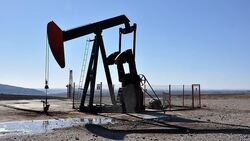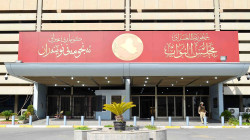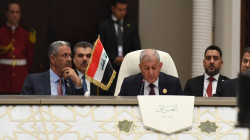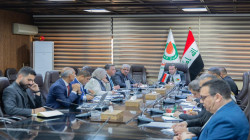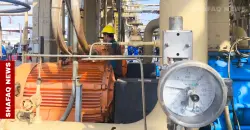Iraq's oil plans: Aiming for 160 billion barrels
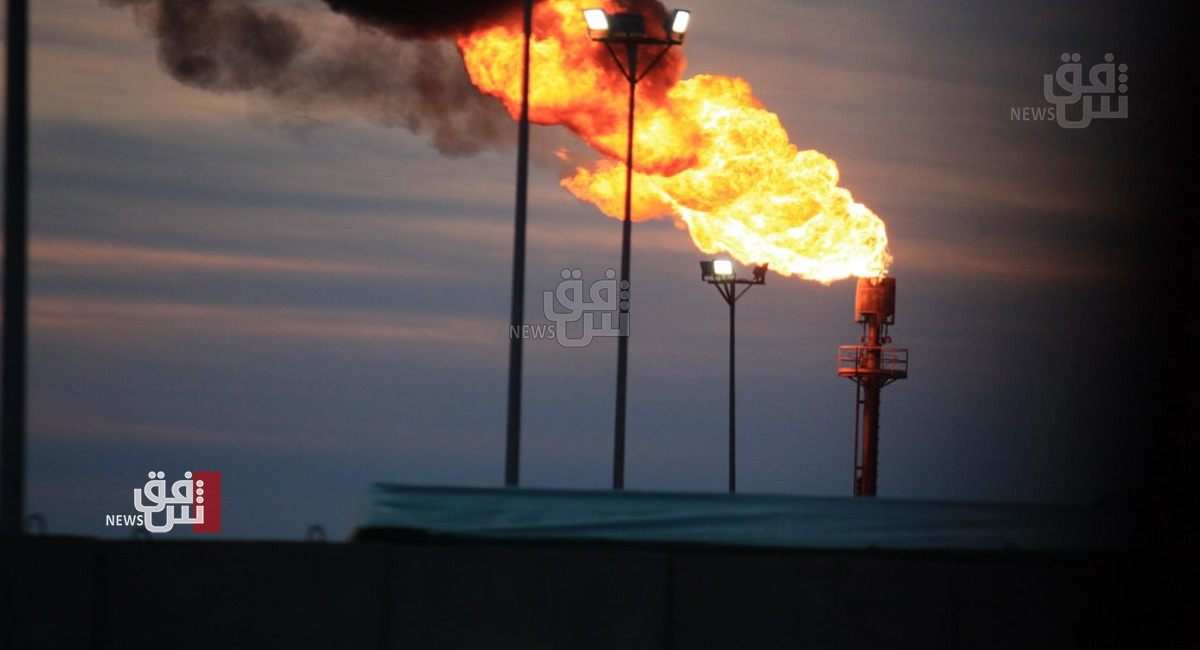
Shafaq News / Iraq is looking to increase its oil reserves to 160 billion barrels, with the announcement of the launch of the fifth and sixth licensing rounds.
There is optimism surrounding the resolution of the gas import issue through local production over the next five years, according to officials and economic analysts.
Earlier on Saturday, Prime Minister Mohammed Shia Al-Sudani launched the supplementary fifth licensing round and the full sixth licensing round, comprising a total of 29 projects for oil and gas exploration fields, distributed among 12 governorates.
These licensing rounds are expected to add two million barrels of oil to national production, as stated by Iraqi Oil Minister Hayyan Abdul Ghani.
Furthermore, “these projects will provide job opportunities, stimulate the economy in those regions, and meet the growing demand for gas,” according to the minister.
Iraq currently produces over 4.5 million barrels of oil per day, with oil sector revenues accounting for more than 94% of the country's GDP. Additionally, Iraq ranks as the second-largest gas flaring country in the world after Russia, with government losses estimated at around $6 billion annually.
While the country's oil production capacity has increased from three million to around five million barrels per day in recent years, the departure of giant companies like ExxonMobil and Royal Dutch Shell from several projects due to low returns has cast uncertainty over future growth. Development operations have also slowed due to increasing investor focus on environmental and social standards.
Chinese dominance
Chinese companies have capitalized on the exit of American and European companies and have entered significantly. The Chinese PetroChina Company acquired the West Qurna/1 field after ExxonMobil's exit.
China participates with eight companies in the fifth and sixth licensing rounds, indicating the strong desire of Chinese companies to enter the energy market.
Today, the Chinese ZPEC company won the investment in the (East Baghdad - Northern Extensions) field after competing with the Iraqi KAR company.
The expected gas production from these rounds equals 200% of the gas imported by Iraq from Iran, which amounts to 1,700 million cubic meters per day. The expected gas production from these rounds will be around 800 million standard cubic meters per day.
Stopping gas flaring
Economic expert Nabil Al-Marsoumi stated that “it is impossible to determine a timeframe to stop gas flaring because the gas fields are currently unexplored and undeveloped, which requires at least five years, a very long period.”
Al-Marsoumi explained to Shafaq News Agency that “the East Baghdad - Northern Extensions field, won by the Chinese ZPEC company, is an exploratory field but is not yet developed.”
He added, “The other blocks are exploratory, and the risk factor is significant. The exploration and development period can range from five to nine years, and it is expected to produce 3.457 billion cubic feet per day after ten years.”
Border fields
Oil expert Hamza Al-Jawahiri said, “Most of the oil fields are border fields with neighboring countries, and their status must be resolved as they are the cause of disputes with Iran, Kuwait, and Saudi Arabia.”
Al-Jawahiri told Shafaq News Agency, "The sixth round includes mostly gas fields, totaling 11 gas fields."
